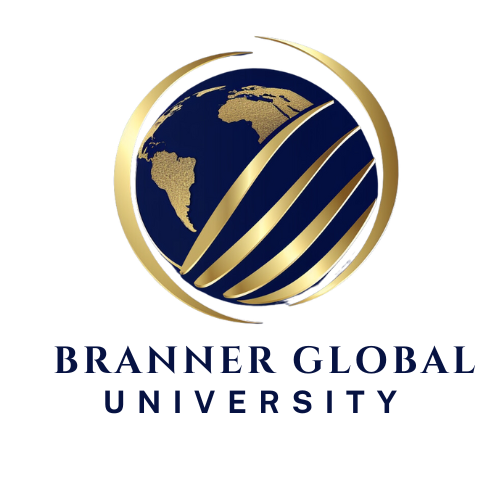Doctoral Program in Educational Sciences.

Sobre o curso
Doctorate in Educational Sciences
Syllabi & Program Structure • Total Workload: 1,770 hours
Branner Global University
3-Year Learning Pathway — PhD in Educational Sciences (BGU)
Year 1 — Theoretical Foundations, Research Methods, and Scholarly Writing (~600h)
Focus & competencies
-
Educational Theories & Curriculum: critical pedagogy, constructivism, pedagogical processes, and educational thought.
-
Education Policy & Leadership: systems, governance, and critical policy analysis.
-
Culture, Society & Inclusion: education and culture; work & gender; sexuality & teacher education; inclusive education (concepts and theories).
-
Research Methods: qualitative/quantitative methods; epistemology and theoretical–methodological elements; study design.
-
Scholarly Production: procedures and preparation of scientific articles (standards, literature review, methods section design).
Reference courses from the model
-
Theories of Education; Education theories and (pedagogical) processes; Educational policies; Educational policies and school management; Education and culture; Education, work and gender; Education, sexuality and teacher training; Educational inclusion: concepts and theories; Research methods in education; Epistemology and educational research; Theoretical and methodological elements of the research; Procedures and preparation of scientific articles; Didactics; History of education; Foundations of education.
Year-1 deliverables
-
Seminar I: pre-proposal with problem statement, objectives, theoretical framework, and methodology.
-
Article 1: systematic/narrative review mapping gaps in the field.
-
Methodology portfolio: instruments (protocols, questionnaires) and data-collection plan.
Year 2 — Line-of-Research Deepening and Data Collection (~600h)
Focus & competencies
-
Thematic specialization in one line of research (Technologies & Innovation; Teacher Education & Practices; Education, Society & Diversity) with guided reading and Advanced Studies.
-
Study operationalization: field access, sampling, ethics, data collection and logging.
-
Data analysis: qualitative procedures (coding, thematic analysis) and/or quantitative procedures (reliability/validity, basic modeling).
Reference courses/activities
-
Seminars II; Advanced Studies III/IV; Methodological–theoretical elements; Subject and society; Assessment and feedback-oriented didactics (content present under “Didactics / processes”).
Year-2 deliverables
-
Field report with collection evidence (field notes, transcripts, datasets).
-
Article 2 (empirical): methods and preliminary results.
-
Seminar II: qualifying/comprehensive exam (project qualification) with internal committee.
Year 3 — Integration, Writing, and Thesis Defense (~570h)
Focus & competencies
-
Theoretical–empirical integration: discussion, implications, and field contributions.
-
Scholarly communication: final writing, formatting, copyright management, publication strategy.
-
Academic management: public presentation, defense, and response to committee.
Reference courses/activities
-
Seminars III; Advanced Studies (completion); Scientific writing (based on “procedures and preparation of scientific articles” as support for final writing).
Year-3 deliverables
-
Completed Thesis (introduction → results → discussion → conclusion).
-
Article 3 (thesis-derived) submitted to a peer-reviewed journal or book chapter.
-
Public Thesis Defense (minutes and approval with any required revisions).
Typical Semester Distribution (illustrative)
-
S1: Foundations (theories, policy, culture) + Methods I + Seminar I.
-
S2: Epistemology, Didactics/Processes + Scholarly Writing + revised proposal.
-
S3: Line-specific modules + pilot data collection + Seminar II (qualification).
-
S4: Line-specific deepening + main data collection + begin analyses.
-
S5: Advanced analyses + Advanced Studies + write results/discussion.
-
S6: Final Thesis writing, article submissions, Seminar III and defense.
Program Learning Outcomes (by the end of Year 3)
-
Mastery of core theories and epistemologies in Education and their applications.
-
Ability to conduct ethically robust research with methodological rigor.
-
Completion of an original Thesis contributing to the field, plus three scholarly products: one review article, one empirical article, and one thesis-derived article.
-
Readiness for higher-education teaching and research supervision.
-
Competence to intervene and evaluate (policies and pedagogical practices) in complex, diverse educational settings.
Classificações e revisões de estudantes

